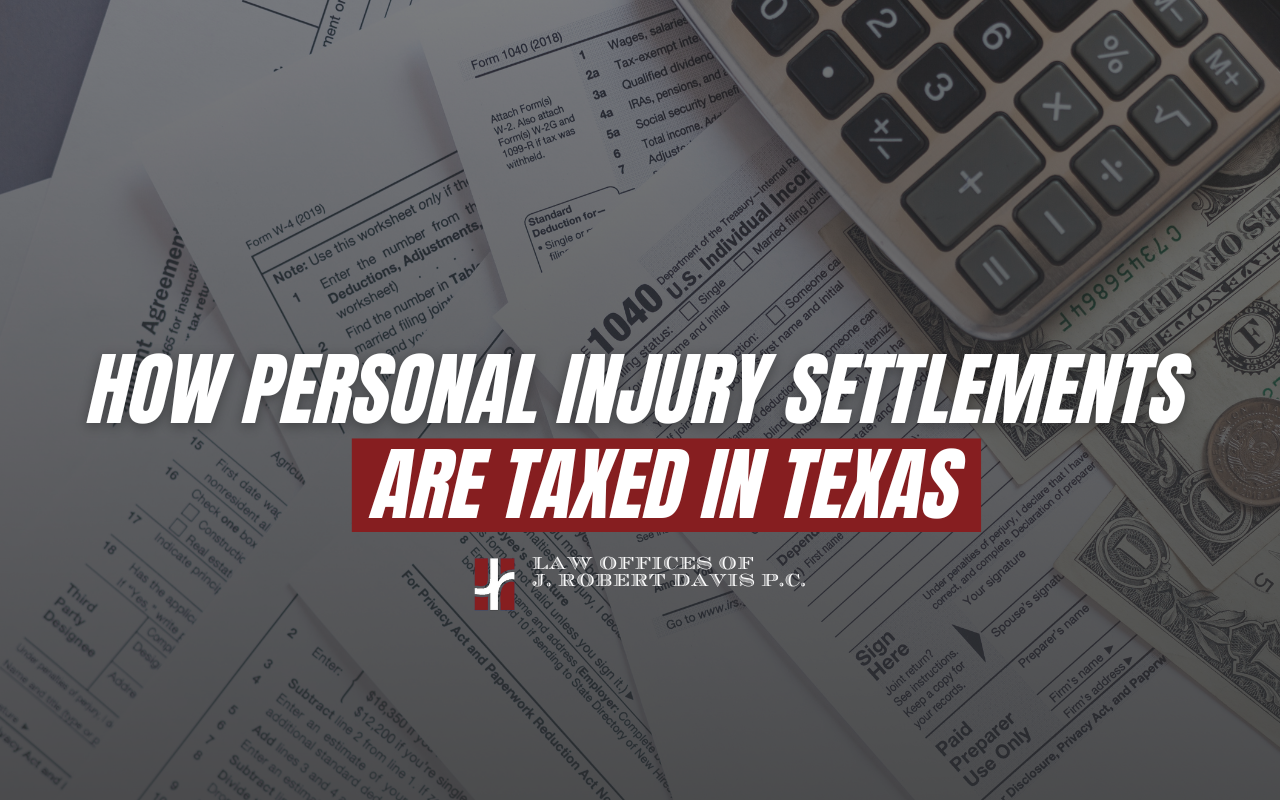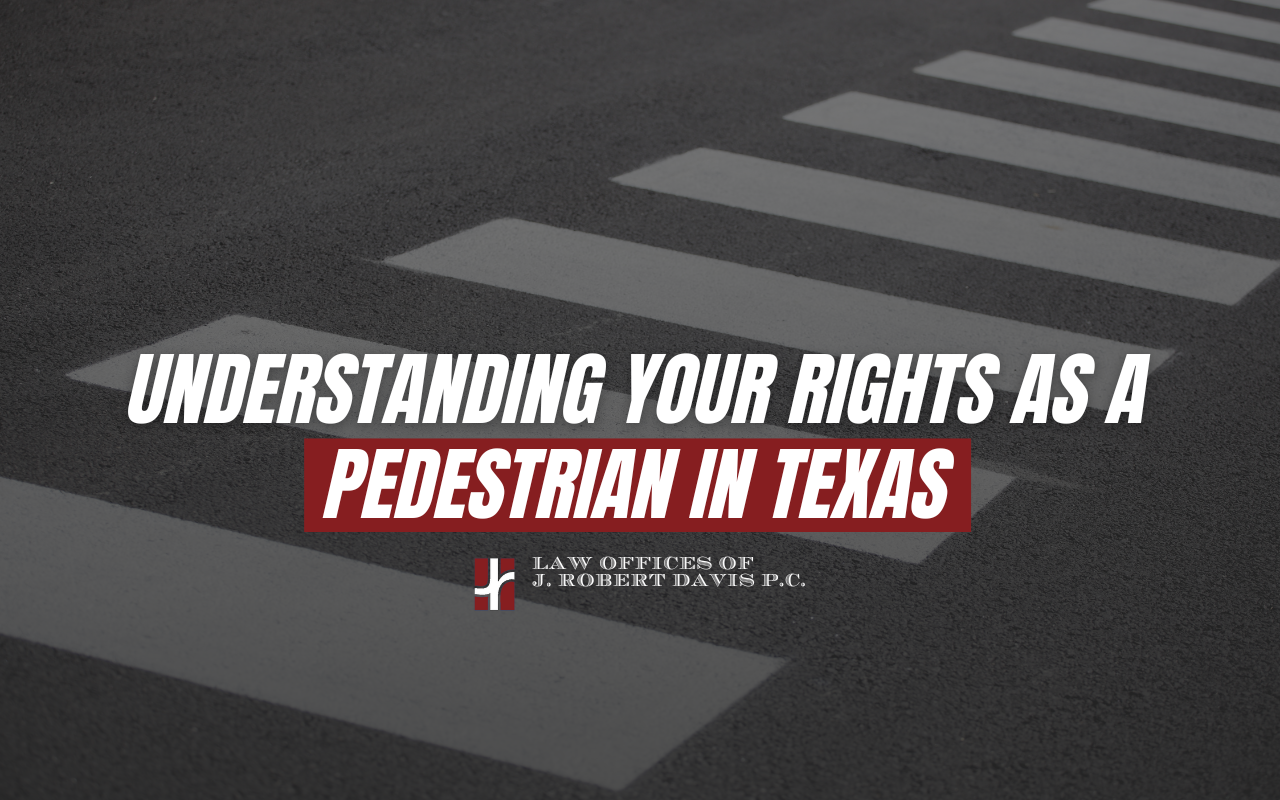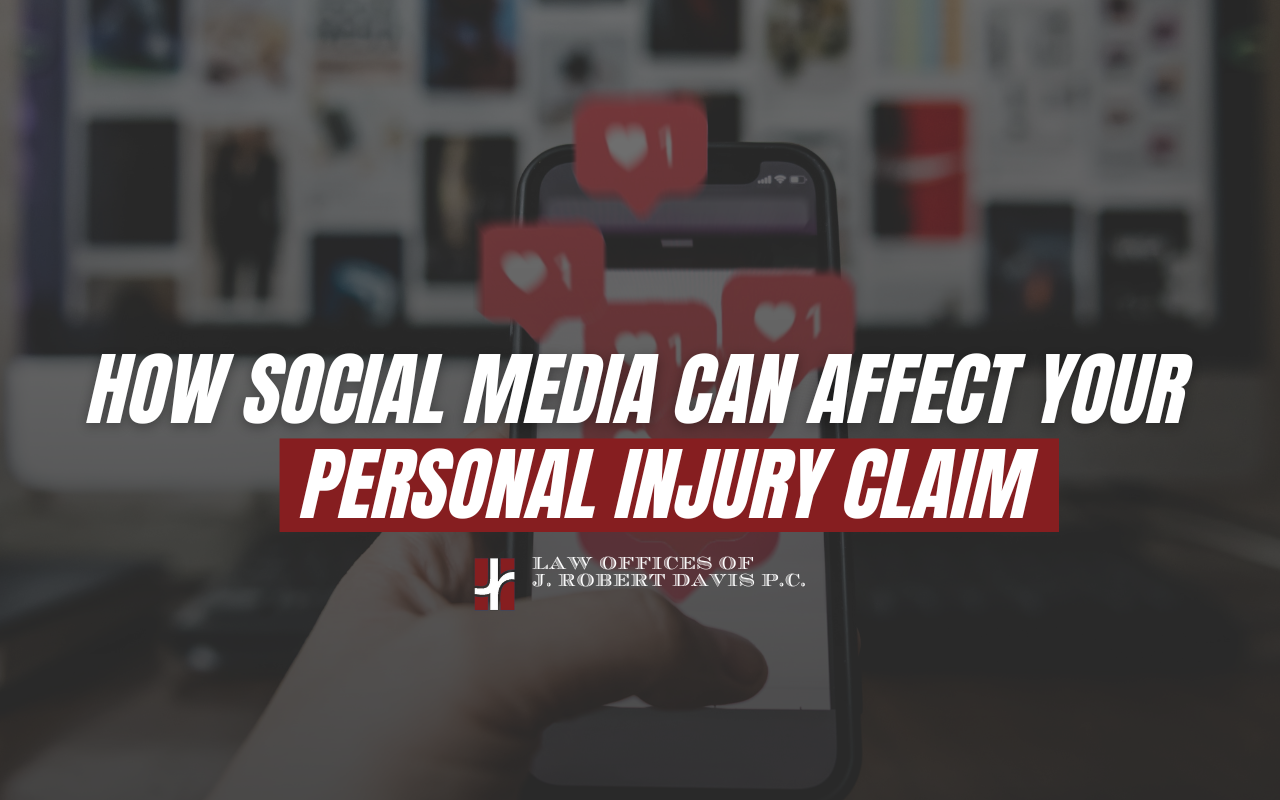
How Personal Injury Settlements are Taxed in Texas
Navigating the complexities of personal injury settlements can be daunting, especially when you factor in the tax implications. At the Law Offices of J. Robert Davis, P.C., we understand that our clients have many questions about how their personal injury settlements will be taxed. In this comprehensive guide, we’ll cover everything you need to know about the taxation of personal injury settlements in Texas.
Introduction to Personal Injury Settlements
A personal injury settlement is a financial agreement reached between the injured party (the plaintiff) and the party responsible for the injury (the defendant). These settlements aim to compensate the injured party for losses incurred due to the injury, such as medical expenses, lost wages, and pain and suffering. However, understanding how these settlements are taxed can be crucial for financial planning and peace of mind.
Taxability of Personal Injury Settlements
The taxation of personal injury settlements in Texas, like in other states, is governed by federal tax laws. The Internal Revenue Service (IRS) provides guidelines on what portions of a settlement are taxable, and it’s important to differentiate between various components of the settlement.
Physical Injuries and Sickness
According to the IRS, compensatory damages received for physical injuries or physical sickness are generally not taxable. This means that if you receive a settlement for medical expenses, pain and suffering, or emotional distress directly related to a physical injury, these amounts are excluded from your gross income and are therefore not subject to federal income tax.
Example: Jane Doe receives a $100,000 settlement for medical expenses and pain and suffering after being injured in a car accident. This amount is not taxable because it compensates her for physical injuries.
Emotional Distress and Mental Anguish
Settlements for emotional distress and mental anguish are only non-taxable if they originate from a physical injury or physical sickness. If the emotional distress is unrelated to a physical injury, the settlement may be taxable. However, medical expenses for treating emotional distress are not taxable if accounted for separately.
Example: John Smith receives a $50,000 settlement for emotional distress following a breach of contract case. This amount is taxable because it does not stem from a physical injury.
Lost Wages and Employment Benefits
Compensation for lost wages or lost employment benefits is typically taxable. Since these payments are considered substitutes for income, they are subject to federal income tax and must be reported on your tax return.
Example: Sarah Johnson receives $30,000 for lost wages due to time off work following a personal injury. This amount is taxable.
Punitive Damages
Punitive damages, which are awarded to punish the defendant for particularly egregious conduct, are always taxable. These damages are not intended to compensate the plaintiff but to serve as a deterrent against similar behavior.
Example: Mark Williams is awarded $200,000 in punitive damages in a personal injury lawsuit. This amount is taxable.
Interest on Settlement Amounts
Any interest earned on a personal injury settlement is also taxable. If your settlement includes interest accrued over time, that portion must be reported as income.
Example: Lisa Brown receives $10,000 in interest as part of her settlement. This amount is taxable.
State-Specific Considerations in Texas
While federal laws primarily govern the taxation of personal injury settlements, it’s important to consider state-specific regulations. Texas does not have a state income tax, which simplifies the taxation process for residents. However, it’s crucial to comply with federal tax laws when reporting your settlement.
Structured Settlements
A structured settlement is an alternative to a lump sum payment, where the settlement amount is distributed over time in periodic payments. This option can provide financial stability and may offer tax advantages.
Tax Implications of Structured Settlements
The same tax rules apply to structured settlements as to lump sum payments. Payments for physical injuries or sickness remain tax-free, while payments for lost wages, punitive damages, or interest are taxable. Each payment is taxed based on its nature, so specific portions of a structured settlement may be subject to different tax treatments.
Benefits of Structured Settlements
- Financial Security: Structured settlements provide a regular income stream, reducing the risk of mismanagement or rapid depletion of funds.
- Tax Advantages: By spreading payments over time, you may be able to manage your tax liability more effectively.
- Customized Plans: Structured settlements can be tailored to meet individual financial needs, such as covering future medical expenses or education costs.
Legal Assistance and Tax Planning
Navigating the tax implications of a personal injury settlement can be complex, and it’s advisable to seek professional guidance. The Law Offices of J. Robert Davis, P.C., specialize in personal injury law and can help you understand the tax consequences of your settlement. Additionally, consulting with a tax professional can ensure compliance with federal tax laws and optimize your financial planning.
Tips for Tax Planning
- Keep Detailed Records: Maintain thorough documentation of your settlement, including the breakdown of damages and any related expenses.
- Consult a Tax Professional: A qualified tax advisor can help you understand the tax treatment of your settlement and identify potential tax-saving opportunities.
- Consider Structured Settlements: Evaluate whether a structured settlement is a better option for your financial situation and long-term goals.
- Plan for Tax Payments: If portions of your settlement are taxable, set aside funds to cover the tax liability and avoid surprises during tax season.
Contact Our Texas Personal Injury Attorney Now
Understanding how personal injury settlements are taxed in Texas is essential for effective financial planning. While compensatory damages for physical injuries are generally tax-free, other components of a settlement, such as lost wages, punitive damages, and interest, may be taxable. By seeking professional legal and tax advice, you can ensure compliance with federal tax laws and make informed decisions about your settlement.
At the Law Offices of J. Robert Davis, P.C., we are committed to helping our clients navigate the complexities of personal injury law and achieve the best possible outcomes. If you have any questions about your personal injury settlement or need assistance with your case, don’t hesitate to contact us.
Ready to learn more about how we can help you? Contact the Law Offices of J. Robert Davis, P.C., today to schedule a free consultation. Our experienced attorneys are here to provide the guidance and support you need.



